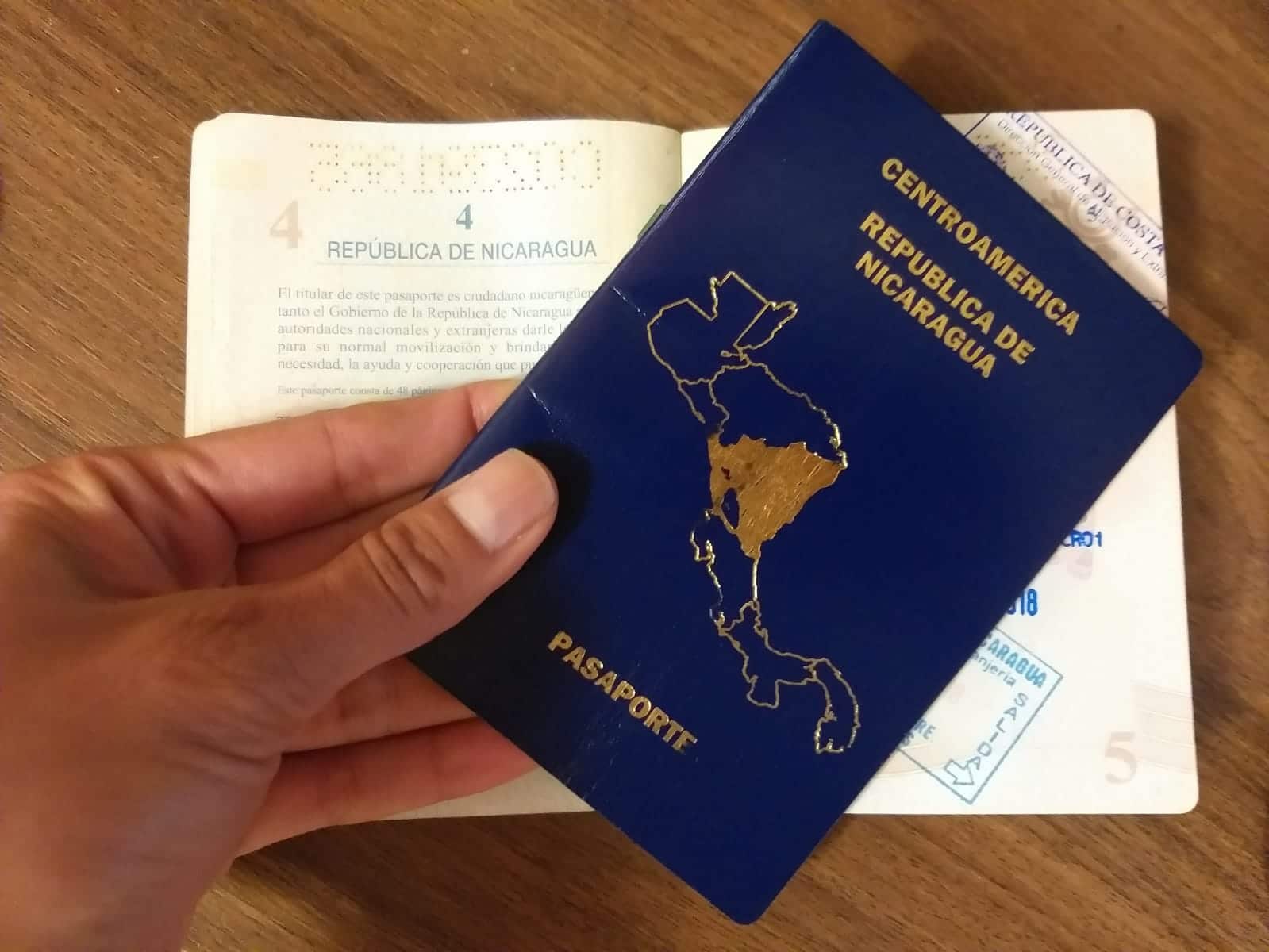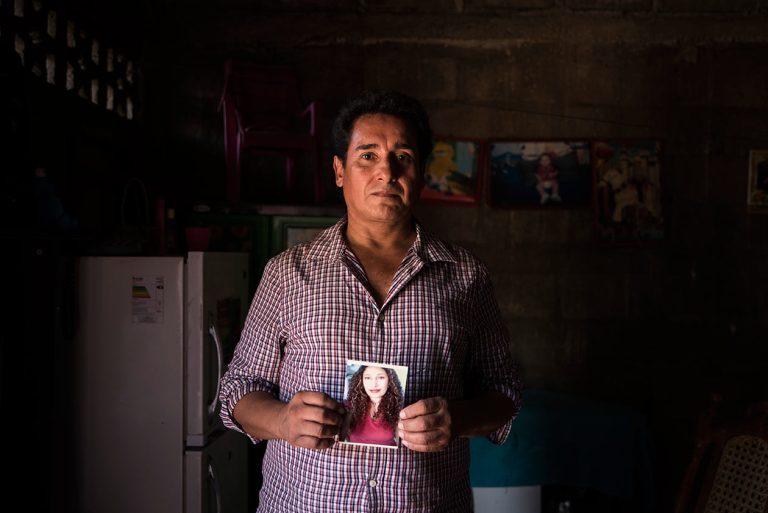27 de marzo 2019

Nicaragua: Public Employees Hindered from Traveling to USA

PUBLICIDAD 1M
PUBLICIDAD 4D
PUBLICIDAD 5D
Kenia Gutierrez, from Chinandega, was on a list of 50 to be released under house arrest, but refused to leave the prison.

Kenia Gutierrez
The political prisoner Kenia Maria Gutierrez Gomez, 36, only had to obey a few guards to obtain the release to house arrest offered by the dictatorship of Daniel Ortega and Rosario Murillo. However, this Chinandega woman refused and chose to remain imprisoned in the La Esperanza women’s prison in Tipitapa.
According to her family and friends, Kenia wants full freedom, not house arrest. She also refused to leave her cellmates. She demands the freedom of all the political prisoners.
Gutierrez was part of the list of fifty political prisoners who were to be released on Friday, March 15. She was kidnapped by the National Police on August 25, at her home in El Viejo, Chinandega. A day later she was presented as a terrorist at the police facilities of Plaza El Sol, in Managua. She was first imprisoned in the infamous El Chipote interrogation cells where she stayed for 48 days, before being transferred to La Esperanza.
Yaritza Rostran, a spokesperson for the university movement and a released political prisoner herself, explained why Gutiérrez refused to leave the cell with the other prisoners that – like Rostran – were sent to their homes under house arrest. “She didn’t want to leave because it seemed insulting that we should be released to house arrest, when in reality they should be giving us our freedom. Kenia considered it better to stay in the Penitentiary System with the women who remained there. We respect her decision, and we understand it because it was difficult to leave our comrades,” said Yaritza.
Joaquín Valle Morales, Gutierrez’s partner, understands Kenya’s decision. “Everyone who is a political prisoner must leave in freedom, not half freedom, as under house arrest. Freedom is one word, meaning to be free; that’s what she wants,” he said.
Kenia’s brother Alvaro Gomez explained that those released by the regime are still prisoners in their homes, where paramilitaries and Ortega policemen haunt and harass them.” Maybe Kenia wanted to avoid that to protect her children and the family. Besides that, she feels that she cannot leave her cellmates behind,” he said.
Beatings and torture
utierrez is the cellmate of the merchant leader who called for civil disobedience, Irlanda Jerez, and the singing sisters of Niquinohomo, Olesia and Tania Munoz. The group has been brutally repressed and beaten by guards of the La Esperanza prison, for protesting with actions such as singing the national anthem.
“In La Esperanza, they were all beaten on October 26. In January, they beat Kenia alone when she tried to take water to another cell, to a sick prisoner without water,” stated Gomez. The brother says that Kenia was “savagely” tortured for 45 of the 48 days that she was in El Chipote. “They smashed her toes, they damaged her nails. She begged the doctor many times to remove them, because they hurt; she thought that by tearing them off the pain would end. The doctor didn’t want to, obviously because if he ripped off her nails, she’d have visible signs that she’d been tortured. In her neck, she also had visible signs,” Alvaro described.
Alvaro noted that physical tortures were followed by psychological ones. On one occasion, an interrogator showed Gutierrez a video of her two sons and nephews – all children – as they returned from a nearby store in El Viejo. “The inquisitor pointed his gun at the laptop screen and said: ‘I’m going to kill them.'”
“They wanted to force her to make a video in which she implicated other people, people she did not even know and some whose name she had only heard mentioned in Chinandega and El Viejo. Felix Maradiaga and Lesther Aleman were two of them, people she had only seen on television. They wanted to force her to say things against those people or they were going to kill her children, her parents, her siblings,” he explained.
Judge Convicts Her
In February, Ortega judge Edgar Altamirano declared Gutierrez guilty of the alleged crime of financing terrorism. The judge is the same one that sentenced the peasant leaders Medardo Mairena and Pedro Mena to more than 200 years in prison each, a sentence described as a “legal aberration.”
Altamirano also declared Kenia guilty of proliferating and financing weapons of mass destruction, because she supposedly planned to attack the government media.
The Prosecutor requested a sentence of 18 years in prison.
Kenia’s family believes the accusations are illogical and incoherent, because Kenia and the entire family lack financial resources.
“In the home, there are economic difficulties. She had difficulties due to thefts in her business. It’s absurd to accuse her of financing terrorism. I don’t know what they call financing terrorism,” says Valle.
Kenia’s words for the judge
Gutiérrez had a couple of encounters with the Ortega judge. During a hearing, she wrote a little note to him on a document, saying: “Mr. judge, read Psalm 58.
Psalm 58 of the Bible speaks of the injustices and oppression of the powerful, and of divine punishment for the ungodly.
“Do you, the powerful ones, really pronounce righteous sentences and rule men with righteousness?” reads the second paragraph of the aforementioned psalm. The third paragraph continues: “No! You commit injustice in full consciousness and favor oppression on earth.”
Gomez recalled that the day Altamirano convicted his sister, she took advantage of her turn to say: “You can fabricate against me the evidence you want, you can condemn me to a thousand years if you wish. However, before the eyes of the world and most importantly in the eyes of God, I am innocent. On the other hand, your conscience accuses and condemns you as corrupt.”
They closed their business due to harassment
The political prisoner became involved in the protests because of the anger and pain caused by the Ortega mob’s aggression against the retired elderly people of Leon on April 18. Also, for the first deaths of young people in Managua, especially the 15-year-old boy Alvaro Conrado.
Kenia participated in the marches of Chinandega and El Viejo, but according to her family was never involved in organizing any citizens’ movement. She merely participated, because she was against what the regime was doing.
Prior to her arrest, Kenya and her family experienced days of harassment and threats from Ortega supporters: on the street, at home, in their small business. The persecution and harassment were constant.
“We had a motorcycle business in El Viejo. There was talk that they were going to put a bomb in the business. In the beginning, we didn’t pay much attention, but then they said that they were going to burn our motorcycles. We had to return the bikes in June,” declared Kenia’s brother.
“By July, the harassment and siege were very intense. Vehicles were parked in front of the premises, and through their closed windows they were taking pictures or videos of the premises. For all that, we decided to close the business,” said Gomez.
Reaffirms ideals of freedom
Despite the harassment when she was free, and the torture and beatings in prison, Kenia’s family assured that she has only reaffirmed her ideals of freedom and democracy for Nicaragua.
“She speaks more firmly, you can see strength and conviction in what she says. What they do when imprisoning someone is to provoke anger, provoke rage,” reflected her partner, Joaquin Valle.
He commented that Kenya “has always had that strength.” On one occasion, he told her not to go to a march, because he felt she’d be in danger, but she replied: “You believe that women only exist to be beautiful. No. We also feel, we also think. As a woman, I have to do something for this country.”
Thank you for reading our English section, brought to you in collaboration with Havana Times. If you wish to subscribe to our English Weekly Newsletter, you can do it here. Please spread the word and share this link with your friends, family or contacts.
Regards,
Archivado como:
PUBLICIDAD 3M
Confidencial es un diario digital nicaragüense, de formato multimedia, fundado por Carlos F. Chamorro en junio de 1996.
PUBLICIDAD 3D